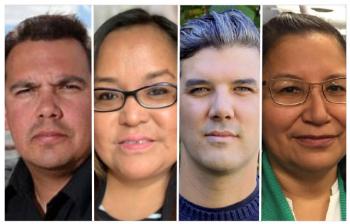Image Caption
Summary
Tania Cameron is working hard to top the number of First Nations electorate who voted in the northern Ontario riding of Kenora in 2015.
If she’s successful, chances are it will be one of the few ridings that will see a higher turnout of Indigenous voters for the 2019 federal election on Oct. 21.
Disenchantment with Justin Trudeau’s Liberals is expected to lower the number of First Nations people who will go to the polls this time around, said University of Manitoba political science professor Niigaan Sinclair.
“Even though we participated (in the 2015 election) more than ever in Canadian history, there was yet again the exact same behaviour by the Canadian government and, in fact (in) many situations, it got worse, particularly when it came to land and resources,” said Sinclair. Indigenous participation will fall, he believes.
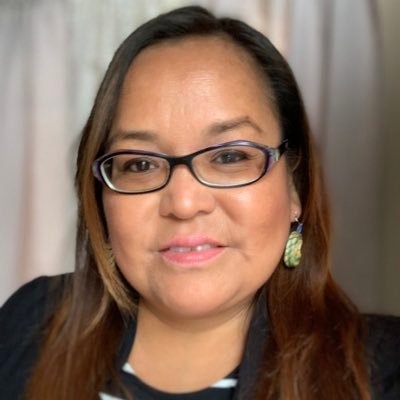
Cameron is banking on that discontent with Trudeau—a feeling she knows personally—to get more First Nations voters, as well as more non-Indigenous voters, in Kenora, to mark their ballots for New Democratic Party candidate Grassy Lakes First Nation Chief Rudy Turtle. It’s a possibility NDP leader Jagmeet Singh is also pushing, having spent Oct. 5 campaigning alongside Turtle in Kenora.
In 2015, Conservative Natural Resources Minister Greg Rickford was defeated by Liberal (and one-time Indian Affairs minister under Jean Chrétien) Bob Nault in the Kenora riding. Rickford, now Ontario Indigenous Affairs minister in the Doug Ford government, placed third. The battle was between the Liberals and the NDP, with Nault taking the seat by less than a 500 vote margin.
The Kenora riding is home to 42 First Nations, 37 of which had polling stations in 2015. Thirty-three of those polling stations counted more ballots in support of the NDP. It’s Cameron’s aim to get an additional 20 to 30 more voters out per polling station on Oct. 21.
“While we’ve been focusing on those four that voted Liberal, I’m not sure we’ve made any headway on that front, but certainly maintaining those 33 First Nations, and hopefully getting more people to vote NDP this time around,” said Cameron.
Cameron is no stranger to supporting the NDP. She ran unsuccessfully in two federal elections under the NDP banner in Kenora. In August she was hired by the NDP to help Turtle get elected.
Her allegiance is a marked difference from 2015 when she was campaigning on the movement she started. Rock the Indigenous Vote was a non-partisan effort intended to encourage the Indigenous electorate to play an active role in ousting the Harper Conservatives.
Getting rid of the Conservatives was also the goal of the Idle No More movement. In the early days, Idle No More resulted in flash-mob round dances, blockades and prayer circles giving voice to Indigenous people as protectors of the lands and waters and opponents to Conservative-proposed bills that would damage the environment.
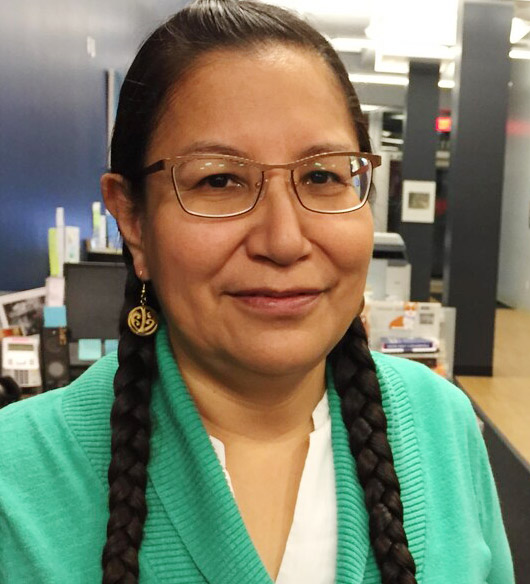
For Sylvia McAdam, one of the four women who founded the movement in 2012, she never thought that civil discontent would find its way to the polls and Indigenous people would turn out to vote in record numbers.
“My hope was that people would begin thinking about rebuilding Indigenous nationhood … rebuild those very systems that existed long before any colonial structure or any Europeans were here,” she said.
While this election hasn’t seen a movement similar to Idle No More, McAdam says she has noticed that the political parties are speaking more to Indigenous issues and that has opened-up discussion among the Indigenous population.
“This election certainly has a power of its own in terms of how the communication is happening within Indigenous peoples. In my opinion, from what I’m seeing, people are informing themselves, they’re talking more, they’re paying attention to what is happening in the political places,” she said, pointing out that this is a shift from previous elections.
McAdam holds that she would never tell anyone whether or not they should vote, but “they need to understand when Indigenous people vote in these systems, they entrench and legitimize the fictional jurisdiction of Canada.”
Robert-Falcon Ouellette, incumbent Liberal candidate for Winnipeg-Centre, says he has heard this argument before.
“Whether we like it or not as Indigenous peoples we live within Canada. We might as well participate and ensure the system represents our values each and every time. When we vote it has a consequence, it has an importance because if you don’t vote, someone else will make the decisions for you and you might not like them,” he said.
That is the stand that is being taken in the Yukon, where the Assembly of First Nations Yukon Region and the Council of Yukon First Nations have started their own non-partisan effort. “A Yukon That Votes!” is geared toward getting voters informed on how to vote and educated on candidates and party platforms. In 2015, more than 60 per cent of eligible voters in the Yukon marked ballots.
“As Yukon First Nations represent approximately 23 per cent of Yukon’s population, they have the power to influence the political landscape. That is done by voting,” said Council of Yukon First Nations Grand Chief Peter Johnston.
AFN Chief Perry Bellegarde says that First Nations voters “flipped” 21 or 22 ridings and “influenced” more than 50 ridings in the 2015 election. The Liberals and the NDP benefited the most from the large turnout of First Nations voters. While Liberal support climbed on-reserve, the NDP still claimed the most votes.
In an analysis of this election, the AFN says that of the 338 ridings, there are 63 “priority districts” in which First Nations electorate can swing the votes. One of those ridings happens to be that of Conservative leader Andrew Scheer, who won in Regina-Qu’Appelle in 2015 by 5,342 votes. The 2016 census sets eligible First Nations voters in that riding at 6,815.
In September when Bellegarde unveiled the AFN’s Honouring Promises: 2019 Federal Election Priorities for First Nations and Canada, he said he would be voting again in October although he didn’t endorse any party. The first time he voted was in 2015.
(See our Honouring Promises story here: https://windspeaker.com/news/windspeaker-news/afn-releases-first-nations-priorities-be-addressed-upcoming-election )
Bellegarde is hopeful that First Nations people will top the 61.5 per cent voter turnout from 2015.
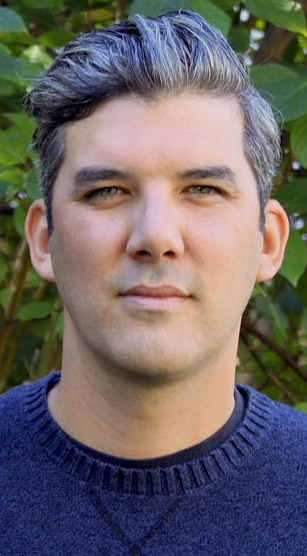
That is highly unlikely to happen, says Hayden King, executive director with the Indigenous think-tank Yellowhead Institute based at Ryerson University.
“Last time around (there was) a very clear anti-Conservative campaign. We just had a decade of Stephen Harper, so there was more incentive to get out and vote. This time around I think there’s just more cynicism. We had that (Rock the Indigenous Vote) campaign and people went out and voted and what did we get for it? A bunch of broken promises.” said King.
Sinclair goes a step further, saying, “(Trudeau) created more apathy, more distrust, more suspicion in his four years among young First Nations first-time voters than perhaps anything else.”
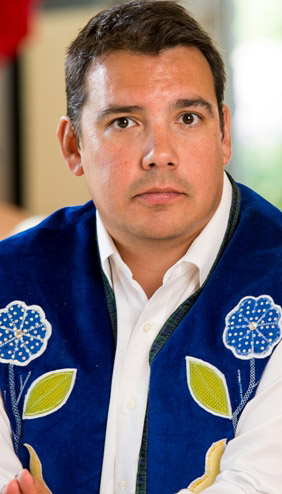
To those disillusioned young Indigenous voters, McAdam says, “I would encourage young people to focus on rebuilding Indigenous nationhood such as it is from the understanding of our languages, from the understanding of our cultures, from the understanding of our lands because right now with the climate crisis … I think the most important issue and the most important thing at this point in time is for every one of us to think about the future of our lands and waters.”
King says it’s not his place to encourage or discourage Indigenous people to vote.
“Indigenous people participate in politics in many, many ways and voting is really the sort of bare minimum of the threshold for political participation. Voting is sort of a gesture. I think Indigenous people participate in many, more ways and I certainly don’t think that democracy or the fate of Canada is on the shoulders of Indigenous people to decide,” he said.
In her Oct. 7 opinion piece in Macleans magazine, Pam Palmater, associate professor and the chair in Indigenous Governance at Ryerson University, says just that.
“Voting in the same oppressive governance system has never changed that reality. Something much more profound is required: radical change based on a respect for First Nations as self-determining Nations, the return of their lands and resources and respect for their core human rights,” she wrote.
“This may come from protests, public pressure, litigation or outside intervention at the United Nations level, but relying on voting condemns us all to an impoverished system of governance.”
King takes exception to the findings of a poll commissioned by CBC News this summer, which was administered on-line and included 500 Indigenous people. The poll indicated that 94 per cent of Indigenous respondents thought it was important to vote.
King doesn’t believe that finding is accurate.
Charlie Angus, incumbent NDP MP in Timmins-James Bay, also questions the accuracy of poll findings.
“I’m not dissing polls, but I feel it’s more and more like reading the stars in astrology,” he said, noting that pollsters have difficulty reaching residents in remote Indigenous communities. “Pollsters have no idea where the votes are going. You have to see that on the ground.”
Nadine Callihoo is “on the ground” in Alberta delivering workshops aimed at Indigenous voters. The newly-created workshops are being offered by Native Counselling Services of Alberta (NCSA) and partially crafted by Senator Patty Laboucane-Benson, who previously served as director of research for NCSA.
“I hear people say they don’t vote because they don’t feel they’re connected to the system or the system is a part of them,” said Callihoo. To combat that, she offers down-to-earth examples of the impact Indigenous people have had in the past when they got involved in the political system.
“It’s amazing how empowered people feel,” she said. “People are less resistant to the upcoming vote, more willing to get involved.”
But to what end? asks Palmater.
“I believe that the vast majority of Indigenous people who vote do so with the best of intentions. Here’s the hard truth: when Indigenous peoples vote, they vote for their next oppressor,” she said.

